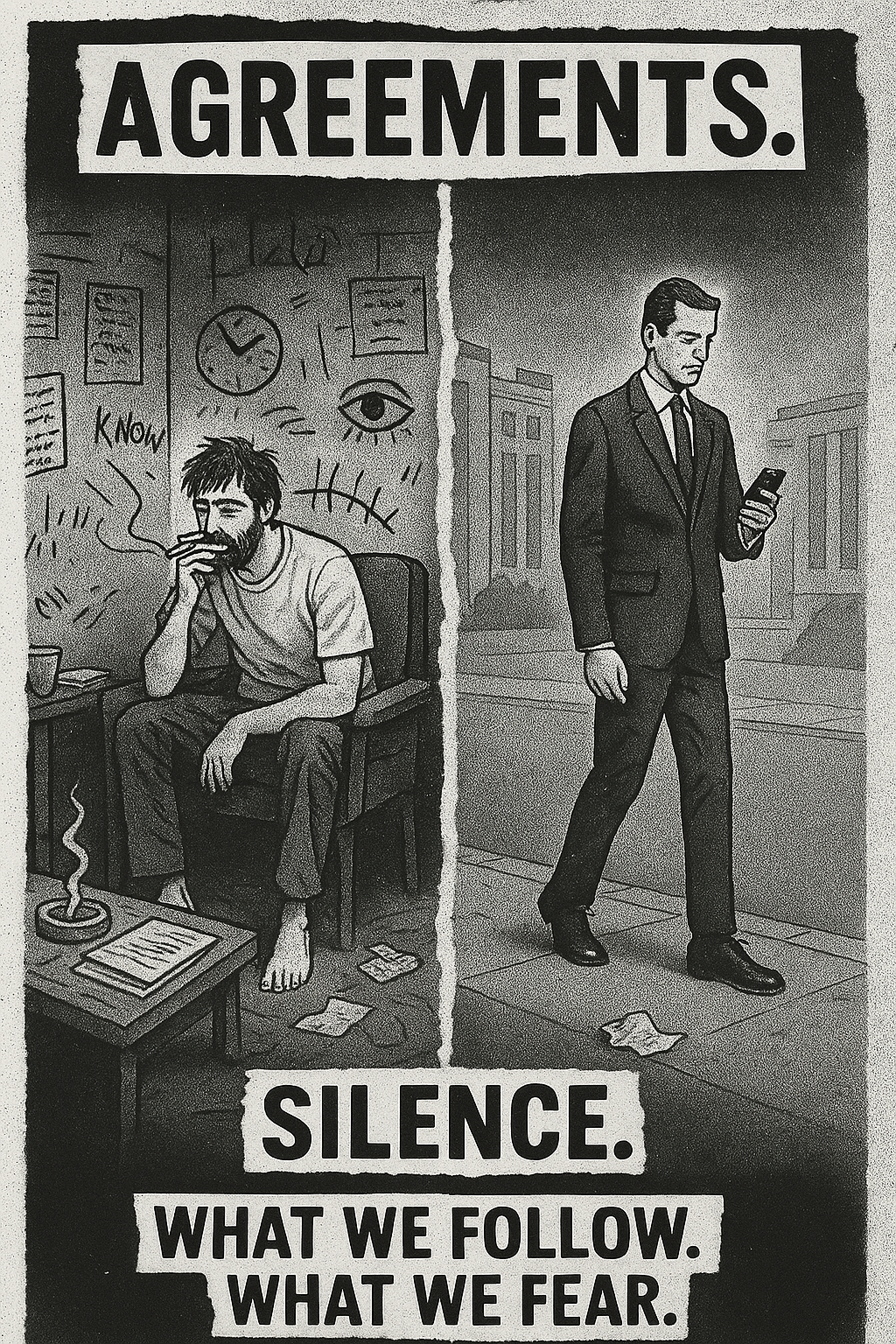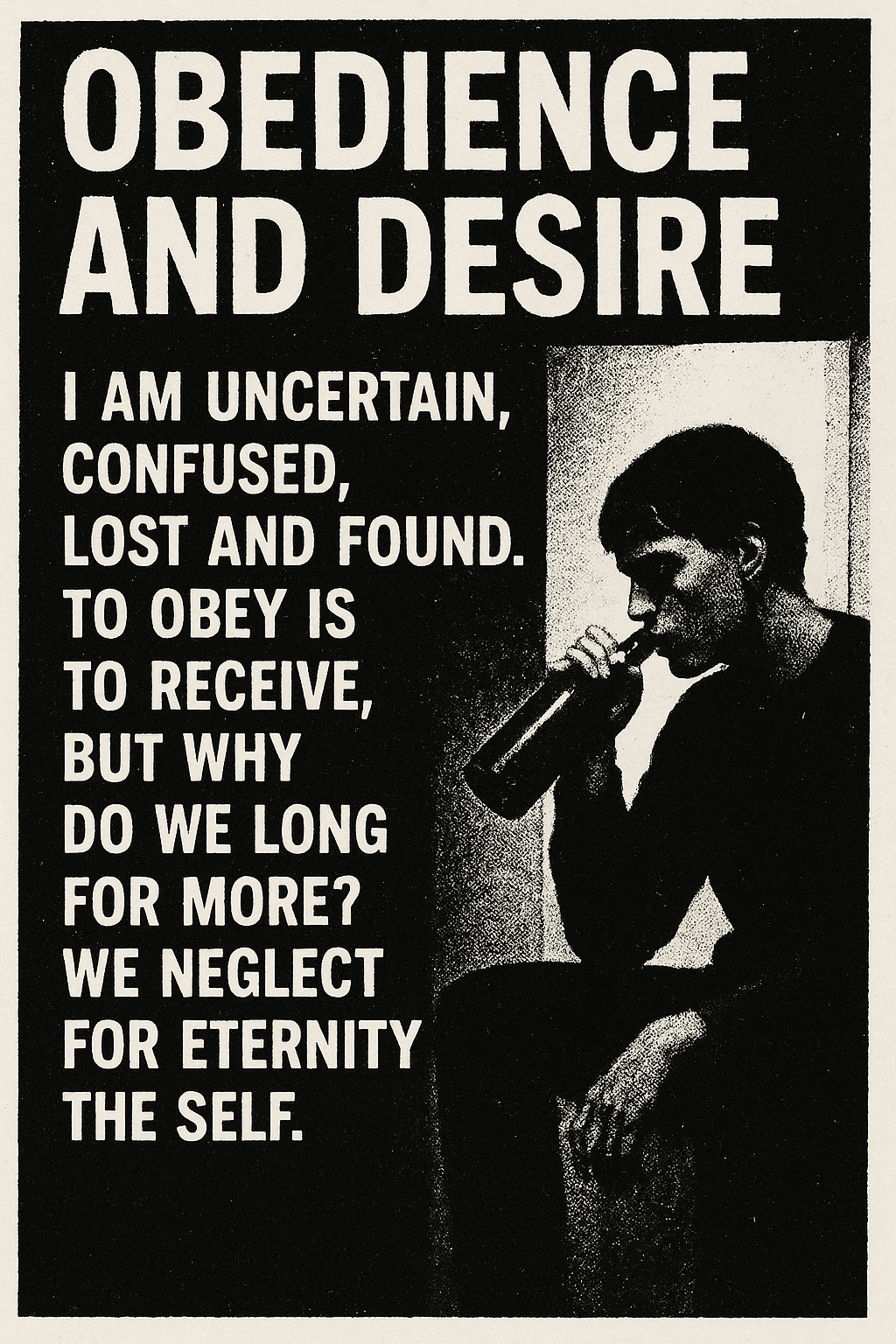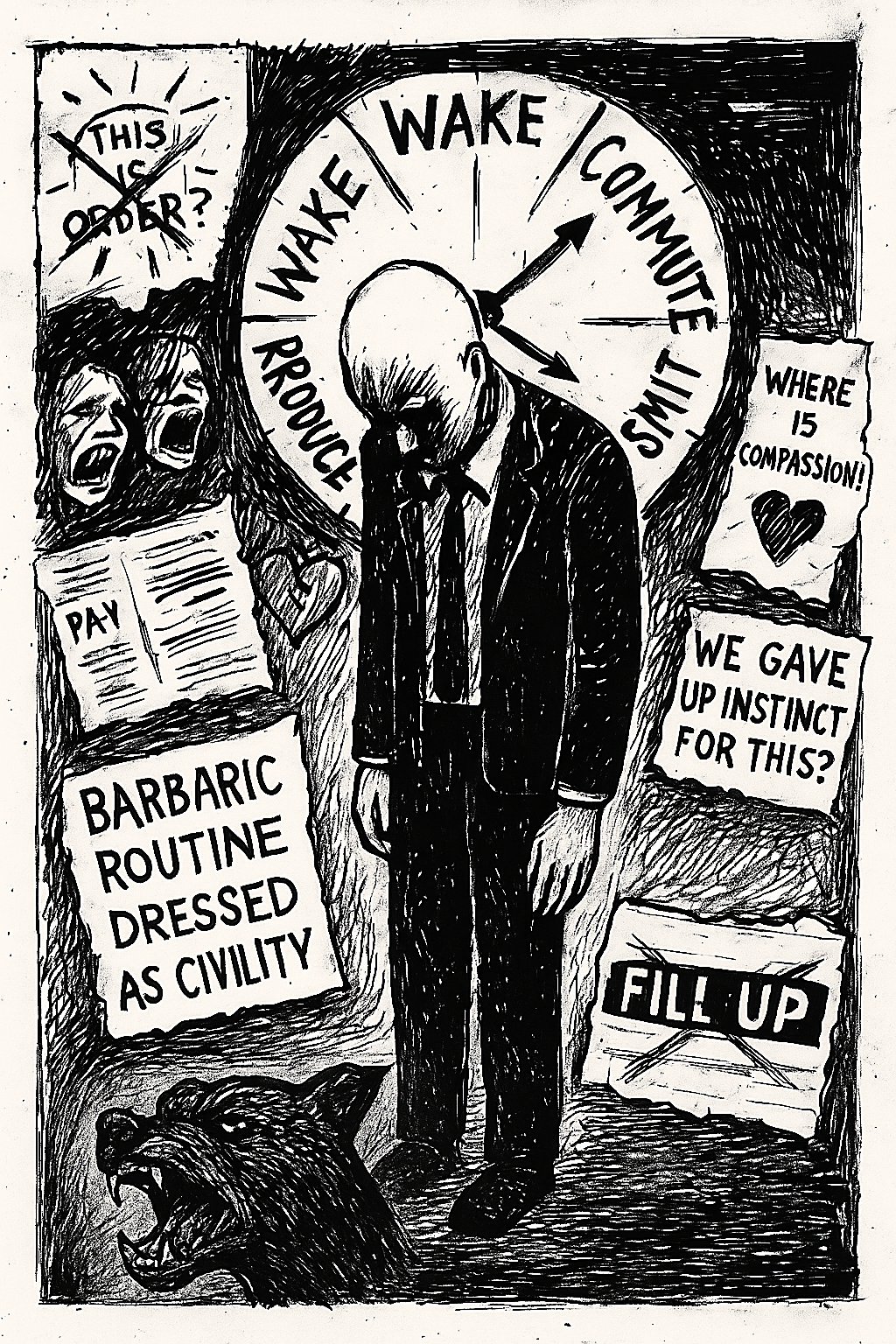
AGREEMENTS. SILENCE. WHAT WE FOLLOW. WHAT WE FEAR.
What do we agree to, often without knowing?
Raw First Draft:
There is much to which we agree. Im unsure if
its unknowing or merely not thinking about.
Agreeing to things as we do as easily
walking. or breathing. Some rules are laws
but there are some that are unwritten and
even more elusive un spoken. We follow rules
because we are scared. and unfortunately
there are not many rules that we follow
because we care when faced with self
importance, self soothing and self
indulgence.We may not kill, but we roll
through stop signs. we may not steal, but we
will rush to take a spot of another. we may
not harm but we will litter. Is it not
cognitive dissonance that is the world we
live in? What we say in the safety of our
homes is never what we dare to speak in
public. what we do in our dwellings is hardly
the same as we compose our selves in the
world. How we exist in our own space is
rarely how we be in society. We agree to
things that we know but not understand.
There is much to which we agree—
though I'm unsure if it's done unknowingly or
simply without thought.
We agree to things the way we walk or
breathe:
automatically. Without pause.
Some rules are laws, clearly written.
But others are unwritten—
and even more elusive, unspoken.
We follow them because we are afraid.
Rarely because we care.
Fear of punishment, of exclusion, of
appearing wrong—
these guide us more than compassion.
We may not kill, but we roll through stop signs.
We may not steal, but we rush to take another's place.
We may not harm, but we casually litter the earth we claim to love.
Is this not the very definition of cognitive dissonance?
What we say in the safety of our homes is rarely what we dare to speak in public. What we do in our private spaces seldom aligns with how we present ourselves to the world.
How we exist alone is almost never how we behave in society.
We agree to things we know—but do not understand.
⚘

OBEDIENCE AND DESIRE — WE NEGLECT FOR ETERNITY THE SELF
Who benefits from our obedience?
Raw First Draft:
I am uncertain, confused , lost and found. Is
it obedience to authority? and to what extent
is it the authority of myself. is it the
creed of ourselves or of another. We obey
because we must but is it our desire to and
if so, why? our kin, our neighbors our
bosses. We receive when obey. revceive to
fill the void that the disobedience of
ourselves have left. the hole we wish to fill
but is endless. the bottomless pit. that
empty leg that can never be filled with the
quench , the thirst, we aim to satisfy with
bottle. the bottle we give a baby who is
crying in hopes to settle them. do we
understand? are we not crying due to longing
just to be satisfied in other ways? One who
desires more never has enough. Obedience to
another provides more. we neglect what we
have for eternity. the self.
I am uncertain.
Confused.
Lost—
and found.
Is it obedience to authority?
And to what extent is that authority… my own?
Do I follow the creed of myself, or of
another?
We obey because we must—
but is it our desire to?
And if so, why?
We obey our kin, our neighbors, our bosses.
We receive in return.
We receive to fill the void left behind
by our disobedience to ourselves.
That hole—
bottomless.
Endless.
A silent pit within. An empty leg that can never be filled—yet we pour into it, hoping for the quench. The thirst.
We try to soothe it like a crying infant with a bottle.
But do we understand what's truly being cried for?
Is it not comfort? Not hunger—but the longing to be held, to be met, to be satisfied in ways deeper than need?
One who desires more will never have enough.
Obedience offers more. But in chasing it—we abandon the one thing we were born with for eternity:
The self.
⚘

BARBARIC ROUTINE DRESSED AS CIVILITY — WHERE IS COMPASSION?
When does civility become complicity?
Raw First Draft:
Is not the world we already live in barbaric
but labeled as civilized? Wake up at 7 leave
by 8 get there for 9 and leave at 5. take our
break here and eat lunch there. compliance
makes order. Allows for multiple parts to
function. In a fragmented world such is a
necessity. There is no room for compassion.
how many of us stop to recognize another. to
allow them some of our time. we are left
battling the dread of each day. that hardly
feels like the description of civility.
filled of dread from the repression of
instinct. filled with dread from an order we
do not truly understand. filled with dread
from the failings of justice and morality
that we chose not to address. filled with
dread from the benefits others receive from
out product of labour. filled with dread from
the guilt and the superego. filled with dread
from the exhaustion imposed on use that we
cannot sublimate should we have the desire
to. filled with dread as our uniqueness and
humanity we so compliantly give up in the
name of partaking within society. maybe we
are confused because to me that sounds. but
perhaps this is what civilization is…
Is the world we live in not already barbaric—only labeled as civilized?
Wake up at 7.
Leave by 8.
Arrive at 9.
Leave again at 5.
Take your break here. Eat lunch there.
Compliance makes order.
It allows the parts to function.
In a fragmented world, such coordination is
called necessity.
But where is compassion in all this?
How many of us stop—really stop—to see another? To give them our time? To listen, not because it's expected, but because we care?
We are left battling the dread of each day.
And that hardly feels like the promise of civilization.
Dread—
from the repression of instinct.
Dread—
from obedience to an order we do not
understand.
Dread—
from the failures of justice and morality we
no longer question.
Dread—
from the benefits others reap from the
product of our labor.
Dread—
from the guilt imposed by our superego.
Dread—
from exhaustion so heavy we cannot even
sublimate it—even when we try.
Dread—
from the uniqueness we give up so
compliantly, just to participate.
Maybe we're confused.
Because to me, that doesn't sound like
civilization at all.
But perhaps—
this is what civilization really is.
⚘
In a world that calls itself civilized, what are the costs of belonging?
Is the suppression of instinct the price of progress?
And when we comply, who do we betray first—ourselves, or those who love us?
"You belong to the dogs."
"Barbarism is not a failure—it's a return."
"What is real must be felt, not taught."
This is not a manifesto. It's not a rebellion. It's a reckoning.
From Garnet Lyndon comes a raw excavation of identity, guilt, and the quiet revolt of choosing to be whole.
For the tired. For the wild—
"Don't fix me."
— The Contract of Civilization
A reckoning with what we agree to, often without knowing


